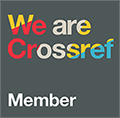Drama ile Bütünleştirilmiş Etkileşimli Kitap Okuma: Mesleki Gelişim Programına Katılan Okul Öncesi Öğretmenlerinin Görüşleri
DOI:
https://doi.org/10.33308/26674874.2025393893Anahtar Kelimeler:
Sesli Okuma- Etkileşimli Sesli Okuma- Okul Öncesi Öğretmeni- Erken Çocukluk Eğitimi- Mesleki Gelişim- KoçlukÖzet
Etkileşimli sesli okuma, okul öncesi dönem çocukları için önemli bir öğrenme bağlamı sunmaktadır. Ancak, öğretmenlerin bu etkinlikleri etkili bir şekilde uygulayabilmeleri için desteğe ihtiyaç duydukları görülmektedir. Bu nitel araştırmada, okul öncesi öğretmenlerinin drama ile bütünleştirilmiş etkileşimli sesli okuma müdahalesine ilişkin deneyimlerinin incelenmesi amaçlanmaktadır. Çalışmaya katılan iki okul öncesi öğretmeni, drama ile bütünleştirilmiş sesli okuma stratejilerini sınıflarında etkili bir şekilde uygulayabilmeleri için atölye çalışması ve sürekli koçluk desteğini içeren bir mesleki gelişim programına dahil edilmiştir. Öğretmenlerle, sınıflarında gerçekleştirdikleri 24 sesli okuma oturumunun ardından bireysel görüşmeler yapılmıştır. Verilerin tematik analizi sonucunda üç ana tema ortaya çıkarılmıştır: (1) Etkili Sesli Okuma Stratejileri, (2) Sesli Okumanın Gelişimsel Bir Araç Olarak Kullanımı ve (3) Sesli Okuma Uygulamalarında Karşılaşılan Zorluklar. Bulgular, öğretmenlerin sesli okuma uygulamalarını daha etkili bir şekilde sürdürebilmeleri için mesleki gelişim desteğinin sağlanmasının kritik önem taşıdığını ortaya koymaktadır.
İndirmeler
Referanslar
Adomat, D.S. (2012). Drama’s potential for deepening young children’s understandings of stories. Early Childhood Education Journal, 40, 343–350. DOI: https://doi.org/10.1007/s10643-012-0519-8
Alatalo, T., & Westlund, B. (2021). Preschool teachers' perceptions about read-alouds as a means to support children's early literacy and language development. Journal of Early Childhood Literacy, 21(3), 413-435. DOI: https://doi.org/10.1177/1468798419852136
Artman-Meeker, K., Fettig, A., Barton, E. E., Penney, A., & Zeng, S. (2015). Applying an evidence-based framework to the early childhood coaching literature. Topics in Early Childhood Special Education, 35(3), 183-196. DOI: https://doi.org/10.1177/0271121415595550
Baker, D. L., Santoro, L., Biancarosa, G., Baker, S. K., Fien, H., & Otterstedt, J. (2020). Effects of a read aloud intervention on first grade student vocabulary, listening comprehension, and language proficiency. Reading and Writing, 33, 2697-2724. DOI: https://doi.org/10.1007/s11145-020-10060-2
Barrentine, S. J. (1996). Engaging with reading through interactive read-alouds. The Reading Teacher, 50(1), 36-43.
Batini, F., D’Autilia, B., Pera, E., Lucchetti, L., & Toti, G. (2020). Reading aloud and first language development: A systematic review. Journal of Education and Training Studies, 8(12), 49-68. DOI: https://doi.org/10.11114/jets.v8i12.5047
Bergman Deitcher, D., Aram, D., Khalaily-Shahadi, M., & Dwairy, M. (2021). Promoting preschoolers' mental-emotional conceptualization and social understanding: A shared book-reading study. Early Education and Development, 32(4), 501-515. DOI: https://doi.org/10.1080/10409289.2020.1772662
Britt, S., Wilkins, J., Davis, J., & Bowlin, A. (2016). The benefits of interactive read-alouds to address social-emotional learning in classrooms for young children. Journal of Character Education, 12(2), 43-57.
Damber, U. (2015). Read-alouds in preschool–A matter of discipline? Journal of Early Childhood Literacy, 15(2), 256-280. DOI: https://doi.org/10.1177/1468798414522823
Davis, A. (2022). Making the most of preservice read alouds. Association of Teacher Educators Conference Proceedings.
Dennis, L. R., Weatherly, J., Robbins, A., & Wade, T. (2021). Practice-based coaching to support paraeducator implementation of shared book-reading strategies in preschool. Teaching Exceptional Children, 53(6), 433-440. DOI: https://doi.org/10.1177/0040059920976675
Dennis, L., Eldridge, J., Wade, T., Robbins, A., Larkin, M., & Fundelius, E. (2024). The effects of practice-based coaching and scripted supports on teachers’ implementation of shared book reading strategies. Child Language Teaching and Therapy, 40(1), 77-95. DOI: https://doi.org/10.1177/02656590241228429
DiGennaro, F. D., Martens, B. K., & Kleinmann, A. E. (2007). A comparison of performance feedback procedures on teachers' treatment implementation integrity and students’ inappropriate behavior in special education classrooms. Journal of Applied Behavior Analysis, 40(3), 447-461. DOI: https://doi.org/10.1901/jaba.2007.40-447
Erdoğan, H. (2020). Teachers’ opinions about the application of interactive reading model in kindergarten [Unpublished Master’s thesis]. Necmettin Erbakan University.
Fisher, D., Flood, J., Lapp, D., & Frey, N. (2004). Interactive read‐alouds: Is there a common set of implementation practices? The Reading Teacher, 58(1), 8-17. DOI: https://doi.org/10.1598/RT.58.1.1
Gosen, M. N., Berenst, J., & de Glopper, K. (2015). Problem-solving during shared reading at kindergarten. Classroom Discourse, 6(3), 175-197. DOI: https://doi.org/10.1080/19463014.2014.991339
Gómez, L. E., Vasilyeva, M., & Dulaney, A. (2017). Preschool teachers' read-aloud practices in Chile as predictors of children's vocabulary. Journal of Applied Developmental Psychology, 52, 149-158. DOI: https://doi.org/10.1016/j.appdev.2017.07.005
Harper, L. J. (2016). Using picture books to promote social-emotional literacy. Young Children, 71(3), 80-86.
Hisrich, K. E., & McCaffrey, M. (2021). Planning and preparing for read alouds. Illnois Reading Council Journal, 49(2), 12-20. DOI: https://doi.org/10.33600/IRCJ.49.2.2021.12
Hoffman, J. L. (2011). Coconstructing meaning: Interactive literary discussions in kindergarten read‐alouds. The Reading Teacher, 65(3), 183-194. DOI: https://doi.org/10.1002/TRTR.01025
Hoffman, J. V., Roser, N. L., & Battle, J. (1993). Reading aloud in classrooms: From the modal toward a "model". The Reading Teacher, 46(6), 496-503.
Hoffman, J. V., Villarreal, D., DeJulio, S., Taylor, L., & Shin, J. (2017). Drama in dialogic read alouds: Promoting access and opportunity for emergent bilinguals. Journal of Pedagogy, Pluralism, and Practice, 9(1), 197-218.
Hsiao, C. Y., & Shih, P. Y. (2015). The impact of using picture books with preschool students in Taiwan on the teaching of environmental concepts. International Education Studies, 8(3), 14-23. DOI: https://doi.org/10.5539/ies.v8n3p14
Isaac, E. (2018). Exploring barriers to effective delivery of interactive read-alouds from the perspective of pre-k and kindergarten teachers [Unpublished doctorate thesis]. Northcentral University
Işıkoğlu-Erdoğan, N., & Akay, B. (2015). Examination of story reading and teacher questions in early childhood education. MAKU Journal of Faculty of Education, 1(36), 34-46.
Kemple, K. M. (2004). Let's be friends: Peer competence and social inclusion in early childhood programs. Teachers College Press.
Kilinc, S., Marley, S. C., Kelley, M.F., & Millinger, J. (2023). A quasi-experimental examination of drama frames: A teacher professional development program targeting student reading achievement. International Journal of Education & the Arts, 24(1).
Kohm, K. E., Holmes, R. M., Romeo, L., & Koolidge, L. (2016). The connection between shared storybook readings, children's imagination, social interactions, affect, prosocial behavior, and social play. International Journal of Play, 5(2), 128-140. DOI: https://doi.org/10.1080/21594937.2016.1203895
La Croix, L., Ward Parsons, A., Klee, H. L., Vaughn, M., & Yun, S. (2024). A snapshot of early childhood teachers’ read-aloud selections. Early Childhood Education Journal, 52(7), 1433-1445. DOI: https://doi.org/10.1007/s10643-023-01534-3
Lennox, S. (2013). Interactive read-alouds—An avenue for enhancing children’s language for thinking and understanding: A review of recent research. Early Childhood Education Journal, 41, 381-389. DOI: https://doi.org/10.1007/s10643-013-0578-5
López, M. M., & Friedman, H. T. (2019). Don't judge a boy by his face: Creating space for empathy, engagement, and skill building through interactive read alouds. English in Texas, 49(1), 32-38.
Martin, K. J., Beck, A. F., Xu, Y., Szumlas, G. A., Hutton, J. S., Crosh, C. C., & Copeland, K. A. (2022). Shared reading and risk of social-emotional problems. Pediatrics, 149(1), e2020034876. DOI: https://doi.org/10.1542/peds.2020-034876
McCaffrey, M., & Hisrich, K. E. (2017). Read-alouds in the classroom: A pilot study of teachers' self-reporting practices. Reading Improvement, 54(3), 93-100.
Merga, M. K., & Ledger, S. (2019). Teachers' attitudes toward and frequency of engagement in reading aloud in the primary classroom. Literacy, 53(3), 134-142. DOI: https://doi.org/10.1111/lit.12162
Merriam, S. B., & Tisdell, E. J. (2015). Qualitative research: A guide to design and implementation. Jossey-Bass.
Moussa, W., & Koester, E. (2022). Effects of story read‐aloud lessons on literacy development in the early grades: Experimental evidence from Nigeria. Reading Research Quarterly, 57(2), 587-607. DOI: https://doi.org/10.1002/rrq.427
Neuman, S. B., & Kaefer, T. (2018). Developing low-income children’s vocabulary and content knowledge through a shared book reading program. Contemporary Educational Psychology, 52, 15-24. DOI: https://doi.org/10.1016/j.cedpsych.2017.12.001
Ng, S. C., & Sun, H. (2022). Promoting social emotional learning through shared book reading: Examining teacher’s strategies and children’s responses in kindergarten classrooms. Early Education and Development, 33(8), 1326-1346. DOI: https://doi.org/10.1080/10409289.2021.1974232
Op ‘t Eynde, E., Depaepe, F., Verschaffel, L., & Torbeyns, J. (2023). Shared picture book reading in early mathematics: A systematic literature review. Journal für Mathematik-Didaktik, 44(2), 505-531. DOI: https://doi.org/10.1007/s13138-022-00217-7
Ozen‐Uyar, R., Yigit‐Gencten, V., & Ceylan, M. (2025). Drama‐based read‐alouds in preschool classroom: Promoting social understanding, social problem solving, and peer relationships. Reading Research Quarterly, 60(3), e70014. DOI: https://doi.org/10.1002/rrq.70014
Rezzonico, S., Hipfner-Boucher, K., Milburn, T., Weitzman, E., Greenberg, J., Pelletier, J., & Girolametto, L. (2015). Improving preschool educators' interactive shared book reading: Effects of coaching in professional development. American Journal of Speech-Language Pathology, 24(4), 717-732. DOI: https://doi.org/10.1044/2015_AJSLP-14-0188
Rosenblatt, L. M. (1978). The reader, the text, the poem: The transactional theory of the literary work. Southern Illinois University Press.
Saldana, J. (2013). The coding manual for qualitative researchers. Sage.
Schapira, R., & Aram, D. (2020). Shared book reading at home and preschoolers’ socio-emotional competence. Early Education and Development, 31(6), 819-837. DOI: https://doi.org/10.1080/10409289.2019.1692624
Scheeler, M. C., Bruno, K., Grubb, E., & Seavey, T. L. (2009). Generalizing teaching techniques from university to K-12 classrooms: Teaching preservice teachers to use what they learn. Journal of Behavioral Education, 18(3), 189-210. DOI: https://doi.org/10.1007/s10864-009-9088-3
Schmidt, A. C., Pierce-Rivera, M., van Huisstede, L., Marley, S. C., Bernstein, K. A., Millinger, J., ... & Restrepo, M. A. (2024). What’s the Story with Storytime?: An examination of preschool teachers’ drama-based and shared reading practices during picturebook read-aloud. Early Childhood Education Journal, 52(7), 1525-1543. DOI: https://doi.org/10.1007/s10643-023-01554-z
Sha, L., Zhang, G., Feng, P., Peng, X., & Luo, L. (2024). Teacher–child interactions during picture book reading in Chinese preschool classrooms: A comparative study of novice and experienced teachers. Early Years, 44(2), 283-298. DOI: https://doi.org/10.1080/09575146.2022.2126442
Van den Heuvel-Panhuizen, M., Elia, I., & Robitzsch, A. (2016). Effects of reading picture books on kindergartners’ mathematics performance. Educational Psychology, 36(2), 323-346. DOI: https://doi.org/10.1080/01443410.2014.963029
Van Elsen, J., Catrysse, L., & De Maeyer, S. (2024). The effect of interactive picturebook reading on problem-solving skills in preschool: A quasi-experiment. Early Childhood Education Journal, 52, 1471–1485. DOI: https://doi.org/10.1007/s10643-023-01542-3
Venegas, E. M., & Guanzon, A. (2023). A planning tool for improving interactive read‐alouds: Why and how. The Reading Teacher, 77(2), 207-216. DOI: https://doi.org/10.1002/trtr.2234
Vygotsky, L. S. (1978). Mind in society: The development of higher psychological processes. Harvard University Press.
Wright, T. S. (2019). Reading to learn from the start: The power of interactive read-alouds. American Educator, 42(4), 4-8.
İndir
Yayınlanmış
Nasıl Atıf Yapılır
Sayı
Bölüm
Lisans
Telif Hakkı (c) 2025 Rabia Özen Uyar

Bu çalışma Creative Commons Attribution-NonCommercial-NoDerivatives 4.0 International License ile lisanslanmıştır.
Sisteme yüklemiş olunan makalenin kapsamı, sunduğu bulgular ve sonucu ve yorumları konusunda Yaşadıkça Eğitim [YE] dergisi Sahibi, Editör, Editör Yardımcısı, Hakemler ve Editör Kurulu'nun hiçbir sorumluluk taşımadığını kabul ederim.
Makalenin özgün olduğunu, herhangi bir başka dergiye yayımlanmak üzere gönderilmediği, daha önce yayımlanmadığını Yaşadıkça Eğitim [YE] dergisi Editörlüğü'ne beyan ederim.
Başlığı belirtilen makalenin, 5846 sayılı Fikir ve Sanat Eserleri Yasasının 22. maddesi gereğince çoğaltma, 23. maddesi gereğince yayma ve 25. maddesi gereğince her türlü taşıyıcı materyal üzerinde veya elektronik ortamda kamuya iletim haklarını Yaşadıkça Eğitim [YE] dergisine karşılıksız, koşulsuz ve süresiz olarak devredildiği, makale ile ilgili devredilen hakların dilediği zaman, mekan ve koşullarda kullanmaya Yaşadıkça Eğitim [YE] dergisinin yayıncısı olarak İstanbul Kültür Üniversitesi'nin yetkili kılınacağını onaylarım.





